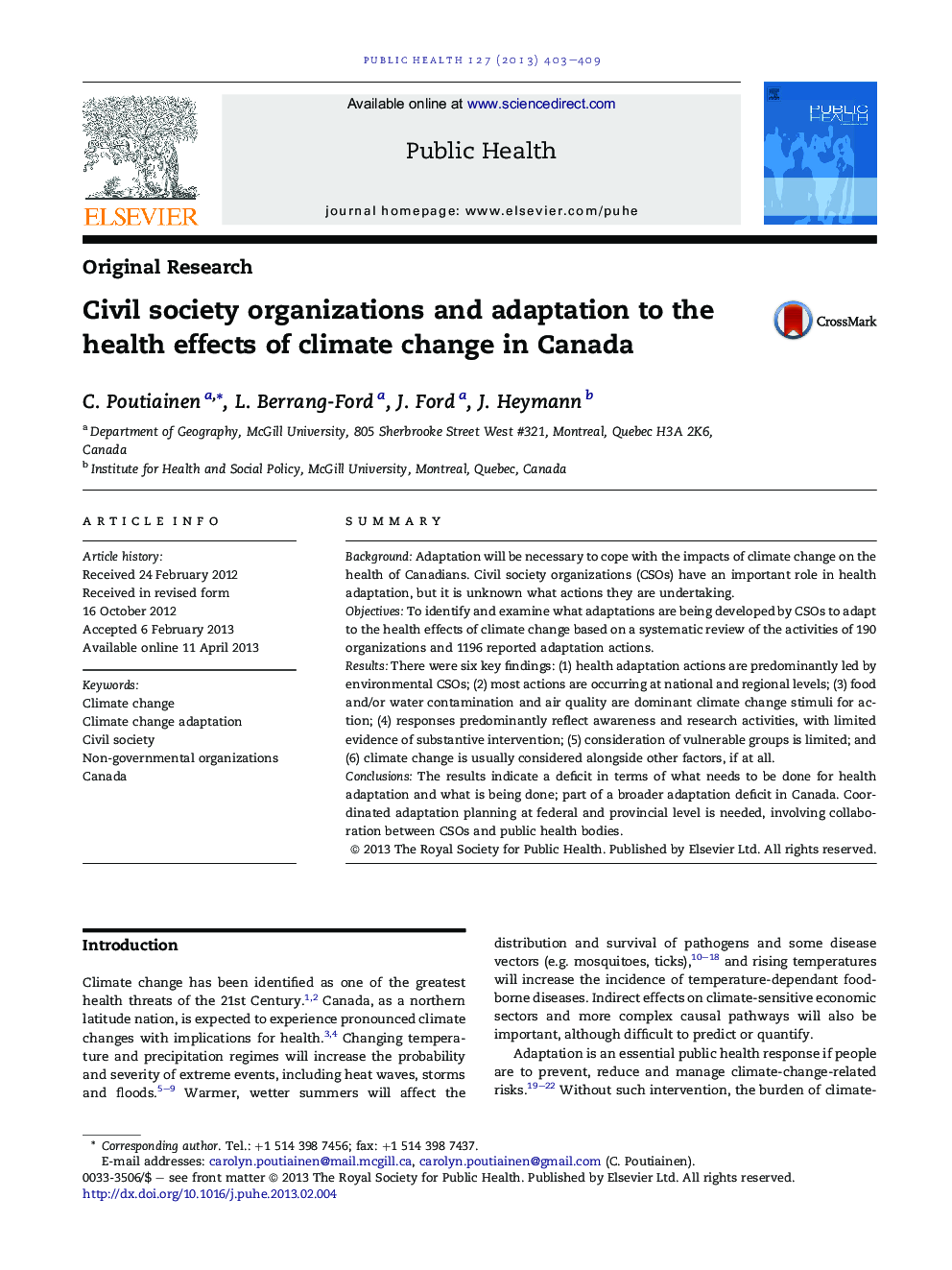| کد مقاله | کد نشریه | سال انتشار | مقاله انگلیسی | نسخه تمام متن |
|---|---|---|---|---|
| 1087836 | 951552 | 2013 | 7 صفحه PDF | دانلود رایگان |

SummaryBackgroundAdaptation will be necessary to cope with the impacts of climate change on the health of Canadians. Civil society organizations (CSOs) have an important role in health adaptation, but it is unknown what actions they are undertaking.ObjectivesTo identify and examine what adaptations are being developed by CSOs to adapt to the health effects of climate change based on a systematic review of the activities of 190 organizations and 1196 reported adaptation actions.ResultsThere were six key findings: (1) health adaptation actions are predominantly led by environmental CSOs; (2) most actions are occurring at national and regional levels; (3) food and/or water contamination and air quality are dominant climate change stimuli for action; (4) responses predominantly reflect awareness and research activities, with limited evidence of substantive intervention; (5) consideration of vulnerable groups is limited; and (6) climate change is usually considered alongside other factors, if at all.ConclusionsThe results indicate a deficit in terms of what needs to be done for health adaptation and what is being done; part of a broader adaptation deficit in Canada. Coordinated adaptation planning at federal and provincial level is needed, involving collaboration between CSOs and public health bodies.
Journal: Public Health - Volume 127, Issue 5, May 2013, Pages 403–409